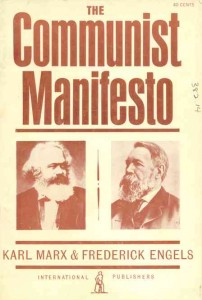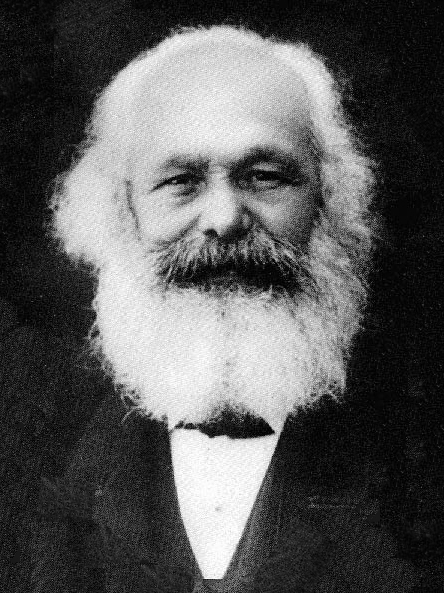What is the theory behind the “Communist Manifesto,” which was published today in 1848?
 February 26, 1848 — Today, Karl Marx and Friedrich Engels published their “Communist Manifesto” — a political pamphlet recognised as one of the world’s most influential political manuscripts.
February 26, 1848 — Today, Karl Marx and Friedrich Engels published their “Communist Manifesto” — a political pamphlet recognised as one of the world’s most influential political manuscripts.
The German philosophers took an analytical approach to the class struggle (historical and then-present) by summarizing the problems of capitalism and the capitalist mode of production. Their theories about the nature of society and politics also features their ideas for how the capitalist society of the time would eventually be replaced by socialism, and then communism.
At first, it had little or no impact on the widespread and varied revolutionary movements of the mid-19th century Europe, or the US. But in time, their Communist Manifesto became one of the most widely read and discussed documents of the 20th century.
Following are the 10 planks of the theory:
1. Abolition of private property and the application of all rent to public purpose.
2. A heavy progressive or graduated income tax.
3. Abolition of all rights of inheritance.
4. Confiscation of the property of all emigrants and rebels.
5. Centralization of credit in the hands of the State, by means of a national bank with state capital and an exclusive monopoly.
6. Centralization of the means of communication and transportation in the hands of the State.
7. Extention of factories and instruments of production owned by the State, the bringing into cultivation of waste lands, and the improvement of the soil generally in accordance with a common plan.
8. Equal liablity of all to labor. Establishment of Industrial armies, especially for agriculture.
9. Combination of agriculture with manufacturing industries; gradual abolition of the distinction between town and country by a more equable distribution of the population over the country.
10. Free education for all children in government schools. Abolition of children’s factory labor in its present form. Combination of education with industrial production.
Sources
Words of Wisdom
The history of all hitherto existing society is the history of class struggles.




